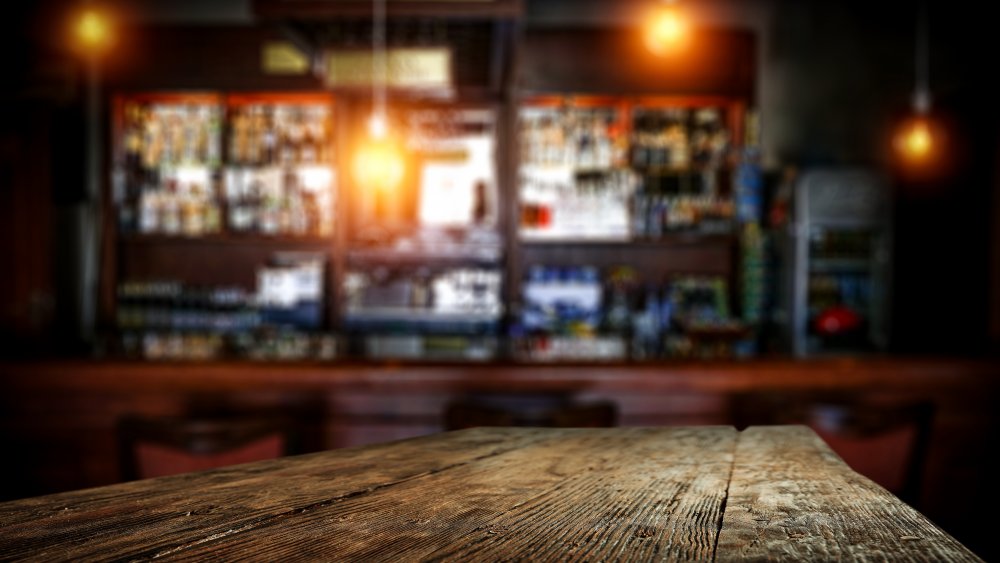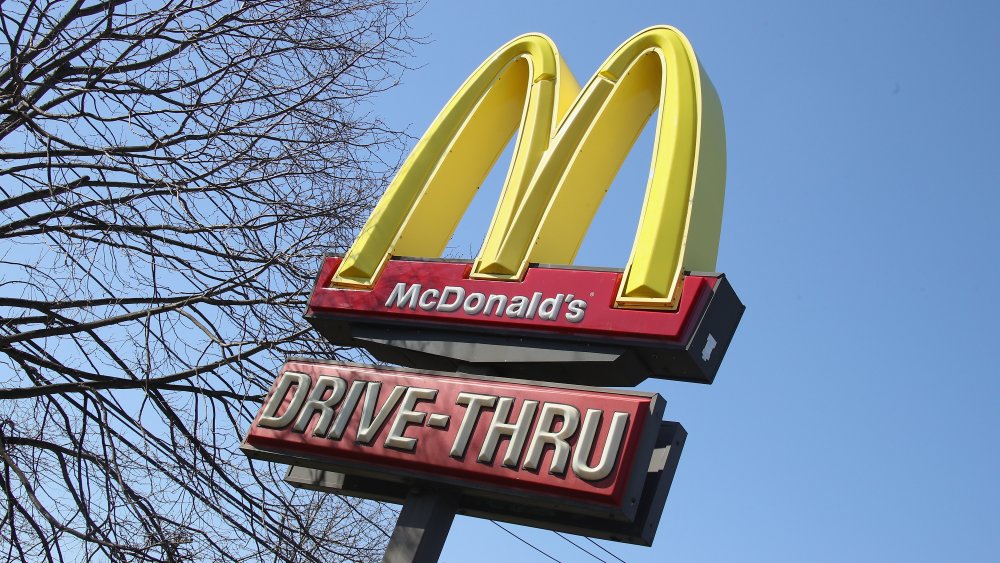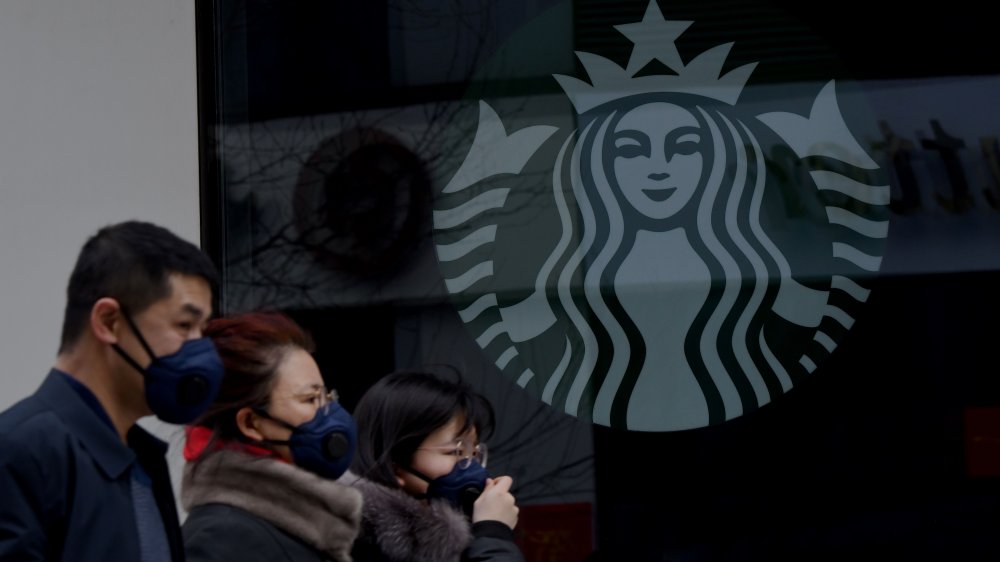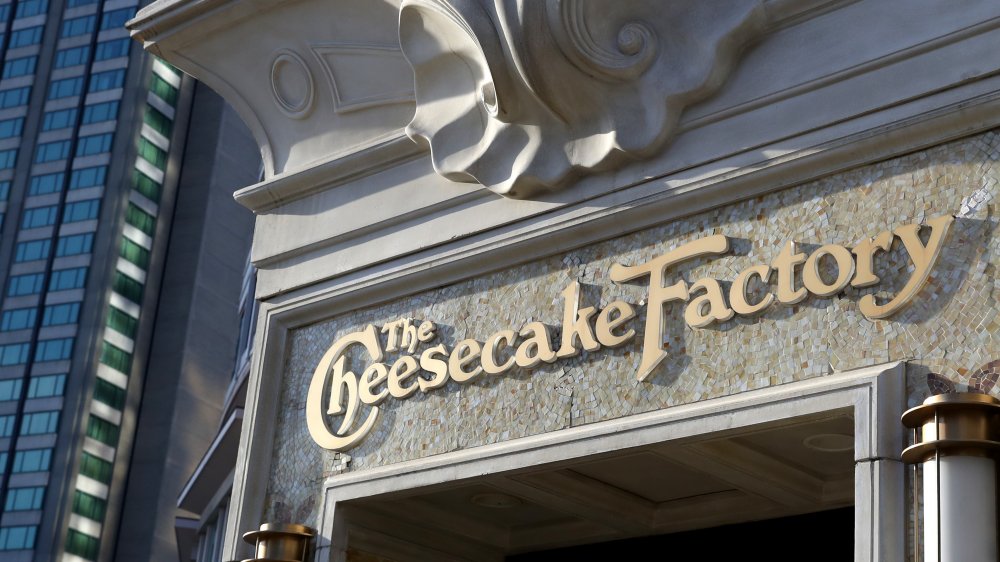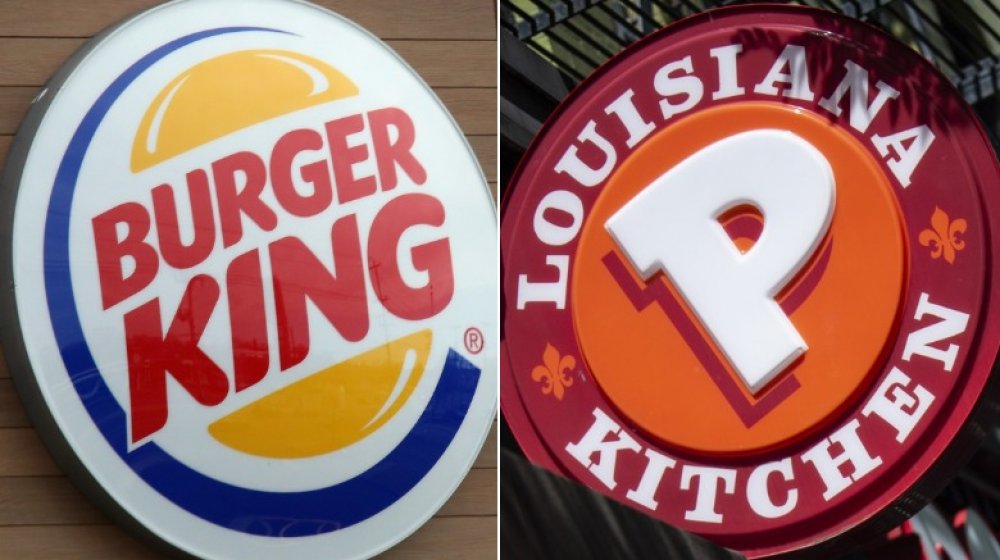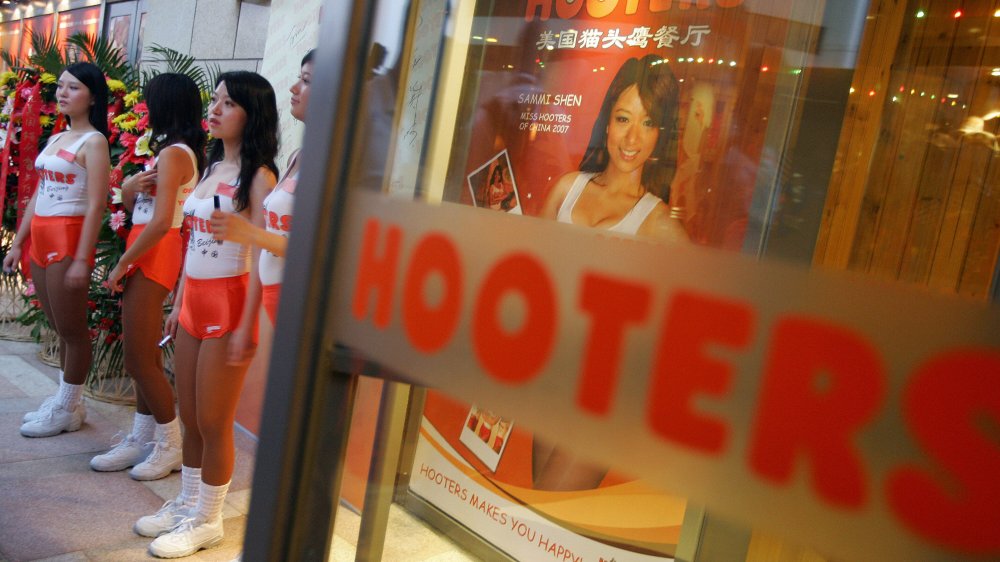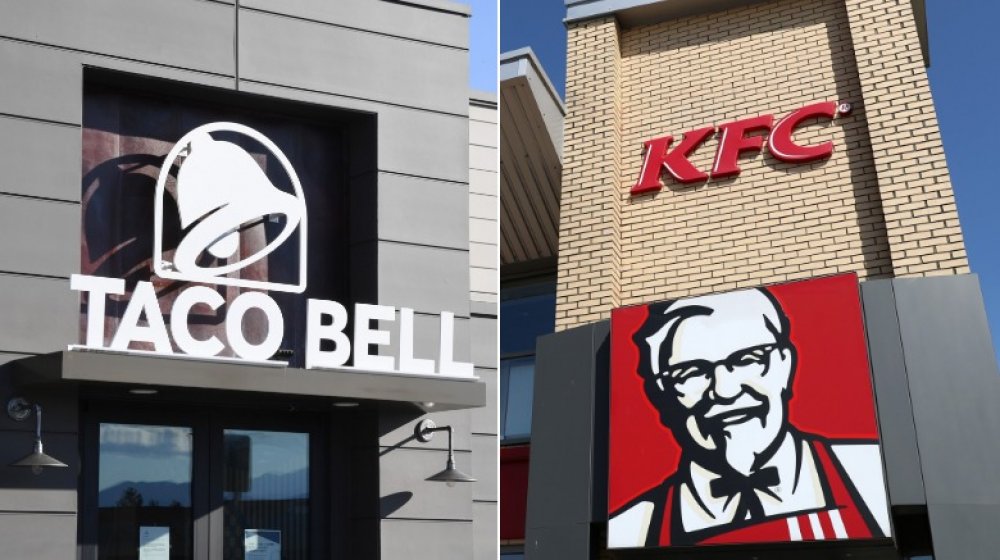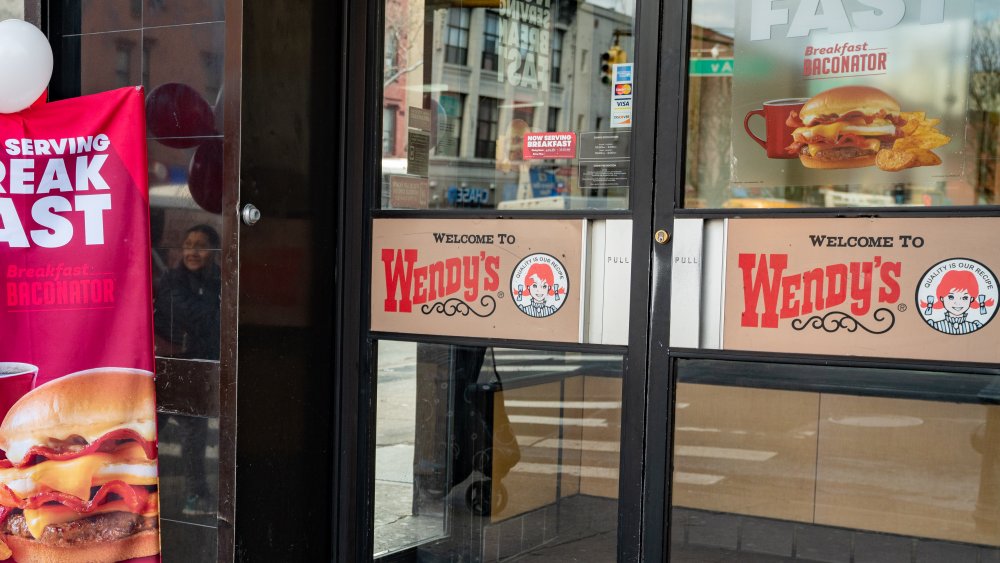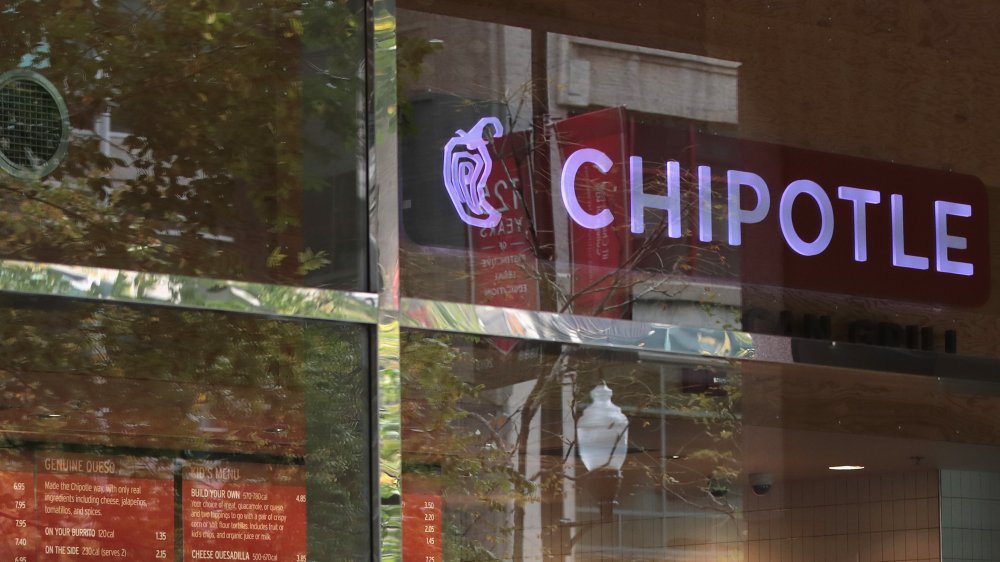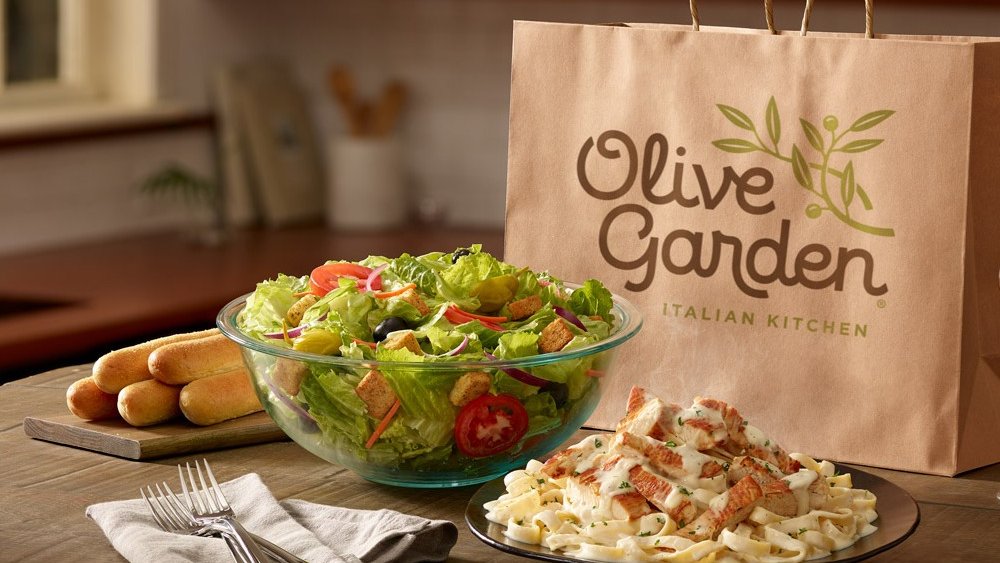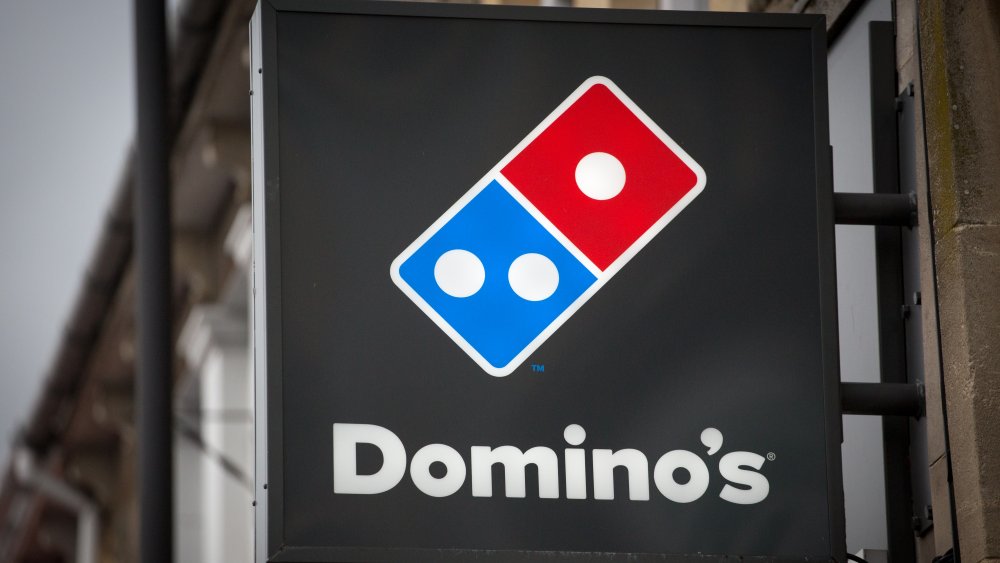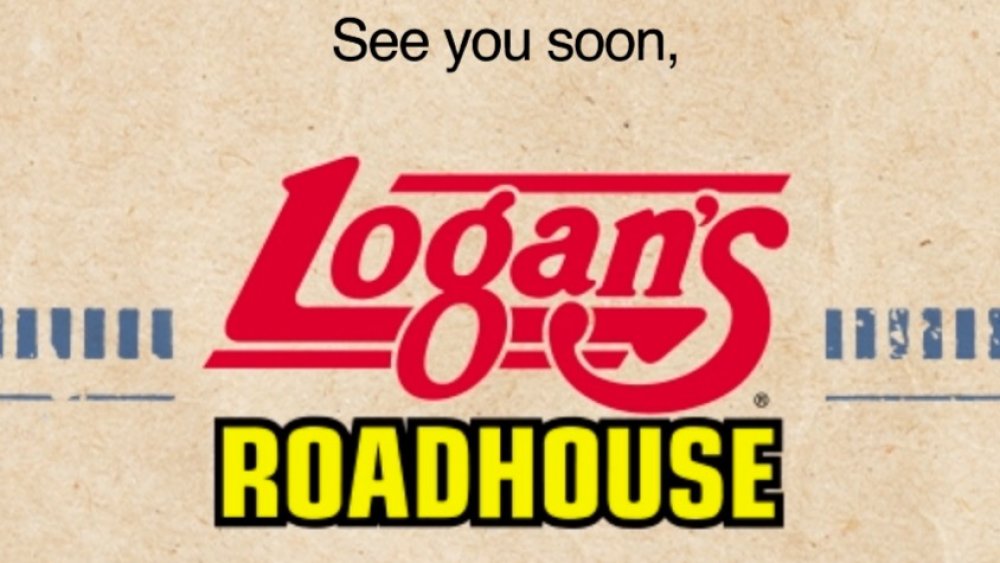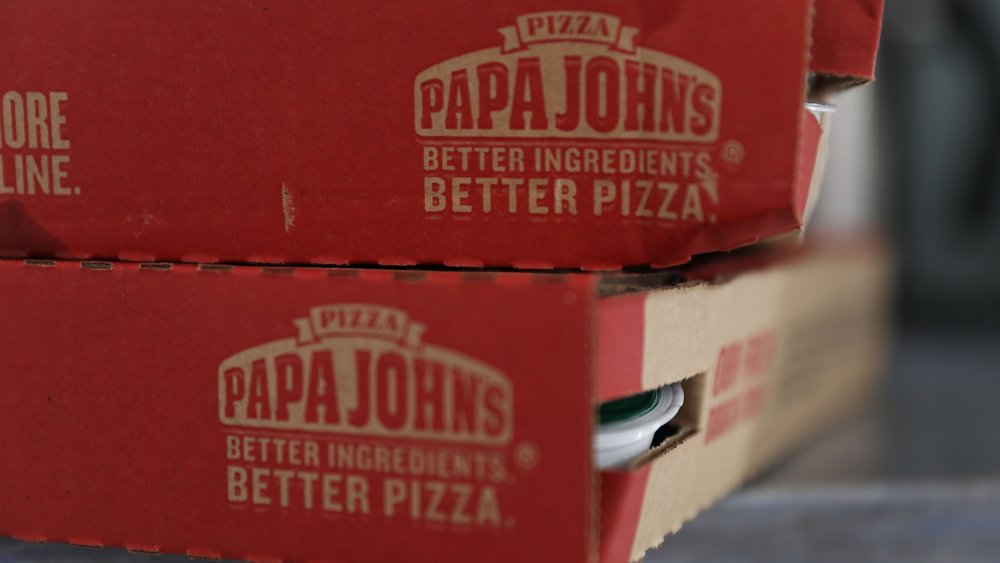How Restaurant Chains Are Really Treating Their Workers During The Pandemic
Working anywhere in the food and restaurant industry is tough. Not only do you have to deal with people at their worst — when they're hungry — many are doing it for the kind of money that leaves them living paycheck-to-paycheck. When something like a widespread pandemic disrupts business, it can be devastating for those employees and their families.
So, what's really going on with the tireless workers we depend on to keep our mornings filled with coffee, our lunch breaks bearable, and the busiest of evenings just that much better?
It hasn't been easy. While some companies have tried their best to reach out and support workers at a time when everyone is struggling — some with pay increases and sick leave — others... well, others have been a little more cold-hearted. Tens of thousands of workers have suddenly found themselves without jobs, and that's utterly terrifying. What's it really like for those on the front lines of the restaurant industry? And, is your favorite server now unemployed? Does that smiling face you see at the drive-thru every morning still have a reason to smile?
Here's how these chain restaurants are really treating their employees during the pandemic.
McDonald's
On April 1, 2020, Business Insider reported that McDonald's was rolling out a new plan to help safeguard their 800,000-odd employees. Before starting their shifts, each employee was going to go through a "wellness check," where they would answer questions about their general health, potential for exposure, and have their temperature taken (once thermometers could distributed to each location).
But just 10 days later, Mother Jones was reporting on a mass strike that saw around 700 fast food workers — mostly McDonald's employees — walk out after filing complaints with the California Division of Occupational Safety and Health. They alleged that conditions in their stores were dire, saying that McDonald's hadn't even supplied them with enough soap and hand sanitizer. They didn't have masks, either.
And not all McDonald's employees are treated equally. According to Fast Company, those who work for McDonald's corporate-owned stores have been given paid sick leave, but considering around 95 percent of McDonald's locations are owned by franchisees, that sick leave is available to just a tiny percentage of workers. For many, if they don't show up, they don't get paid — that's often at the discretion of the franchise owner.
When Business Insider asked workers on the front lines what it was really like, they spoke to a McDonald's janitor who had this to say: "I wish customers would stay home and not eat fast food... Ultimately, I understand by not having customers I won't have a job. But I want my fellow Americans to be safe."
Starbucks
It's been something of a bumpy ride for Starbucks and their employees, and it started back in the end of March. That's when Business Insider reported that the coffee house giant would pay their employees their regular paychecks for the next 30 days... whether they made it to work or not.
That's pretty amazing, and the also said they're offering those same employees childcare support, mental health and sick pay benefits, and catastrophe pay. With that, employees get 20 free sessions with a therapist each year, and at least partial reimbursement for what they spend on childcare.
But that all came at the end of a terrifying few weeks when, according to Buzzfeed, stores remained open in spite of the fact that more and more employees got sick as the weeks wore on. While they finally closed their locations to walk-in traffic on March 21, by April 16, employees were once again feeling like things were up in the air. CEO Kevin Johnson announced (via CNBC) that they would take a "monitor and adapt" stance, and that it wouldn't be long before some locations were open again. Still, it isn't without perks: any employee who continues to work will get an extra $3 per hour, at least until the end of May.
The Cheesecake Factory
Things have not been going well for either The Cheesecake Factory or their employees. While they had announced they were still going to be open for take-out and delivery (and encouraging customers to order online and pay ahead), it wasn't long before they were also announcing some seriously bad news.
On March 25, Eater revealed The Cheesecake Factory has said they weren't going to be able to pay rent on any of their 300-odd locations for the month of April. They were going to be tapping into their line of credit to try to pay their bills, and at this point, 27 locations had already been closed.
Not only were those employees out of a job, but just days later, Nation's Restaurant News says they were putting 41,000 of their employees on furlough. They also say that's not the same as getting rid of them outright: those employees kept benefits and insurance until June 1, and were still eligible for a free meal daily. As for the higher-ups, they took a hit, too: Cheesecake Factory executives cut their base salaries by 20 percent.
Burger King and Popeyes
Burger King and Popeyes are owned by the same parent company, Restaurant Brands International (RBI), so their policies regarding employees are pretty similar. According to Business Insider, RBI announced they would give bonuses to employees who worked through April, and were going to supply their locations with thermometers to help insure everyone who does report for work isn't sick. On top of that, they also added 14 days of paid sick leave for employees who were asked to self-isolate, or were given a COVID-19 diagnosis.
The program isn't cheap — according to Restaurant Business Online, RBI is fronting $70 million in cash, and sending it to franchisees in the U.S. to help them keep their doors open and their people employed.
It hasn't been all good news, though. The Miami Herald reported that when one Burger King employee developed COVID-19-like symptoms, her manager informed her that if she didn't come to work, she was going to be fired. Fortunately, she had a social media sensation named Abuelita on her side, and Burger King corporate was all over that.
Independent Burger King franchisees have also made some controversial decisions: it was only after a lot of negative feedback and some public backlash that Burger King's largest franchisee — Carrols Restaurant Group — backtracked on the announcement that they were going to cut employees' pay by 10 percent during the pandemic (via Restaurant Dive).
Hooters
The official Hooters website details their commitment to safety, including "educating our team members," and "Increasing training of our existing sanitation and health policies." But they also say that "now more than ever, Hooters is your oasis to escape the real world."
But for employees, it's been less of an oasis.
On April 16, 2020, Hooters was hit with a massive class action lawsuit in Florida. The plaintiffs — former employees — claimed that the chain had violated the Workers Adjustment and Retraining Notification (WARN) Act, which requires an employer to provide 60 days' written notice before a mass layoff. And a mass layoff is what happened — according to that lawsuit almost 700 employees in Florida suddenly found themselves without a job (via Class Action).
And that's not an isolated case. Hooters laid off around 500 employees in Indiana (via NWITimes), hundreds more in North Carolina (via WECT News), nearly 100 in Michigan (via MLive), and more than 100 across Ohio (via Dayton Daily News). And according to a letter Hooters' corporate sent to the Michigan Department of Labor and Economic Opportunity, it wasn't a temporary measure. They wrote: "At this time, this action, based upon all available information, is anticipated to be permanent."
Taco Bell and KFC
Taco Bell and KFC — both owned by Yum Brands — have both introduced a number of safety measures designed to help keep their employees safe. According to Forbes, that includes sanitizing wipes to go with every order handed out of a Taco Bell drive-thru, and, at KFC, Plexiglass counter shields and social distancing signs. For both chains, one employee on each shift was going to see their role at their restaurant completely change — their only job for the entire shift would be to clean.
All employees at Taco Bell are seeing their roles change — a lot. For example, anyone who handles cash needs to wear gloves, and change them after every transaction. They're also not the same person that's touching and handing out orders, either, and that's meant a massive shift in the way things are done. They're also supplying their employees with masks, and thermometers for regular health checks.
But still, employees say that Taco Bell has also made a massive misstep: offering several weeks of a Taco Tuesday deal, where customers were given a free Doritos Loco Taco. The deal was a hit... but only with customers. According to Business Insider, employees weren't happy with the idea that it was encouraging more people to come, and increase employees' risk of exposure. One manager called the deal "probably the most painful and absurd thing they could've done during this time."
Wendy's
Wendy's has remained surprisingly mum on just what benefits (if any) employees are going to see as the pandemic continues, but according to QSR, there are some changes being put in place. First and foremost, employees were being trained on new sanitation practices that involved cleaning some high-traffic, high-touch areas as often as every 15 minutes. President and CEO Todd Penegor also added that since dine-in areas were closed in all company owned stores as well as most franchised locations, some drive-thrus may be targeted for expansion.
Then, in early April, they announced some good news for their employees. Wendy's was going to be giving their employees a helping hand financially, in the form of a 10 percent hourly increase for at least the following five weeks, along with free and discounted meals for employees and their families, whether they were working that day or not (via CBS Iowa).
On April 6 (via WJHL, Wendy's announced that most employees working at company-owned locations would be receiving 10 percent short-term pay increases, free meals, and discounted family meals on their days off.
Chipotle
First, the good news: Restaurant Business Online announced that Chipotle was going to be giving its employees a financial boost in the form of a 10 percent hourly pay raise, a policy that would be put in place for at least March 16 through April 12, as well as expanding emergency leave benefits. But, by early April, Reuters was reporting that there were problems.
While Chipotle was promising that their 83,000 employees were entitled to be paid if they came down with the symptoms of COVID-19, or if they were in close contact with someone who was symptomatic, employees, their union, and New York City's chair of the Committee on Health were saying that the reimbursement was slow in coming. Employees were also complaining that even when they called in and reported symptoms, they were being told to report for work — unless they had a positive test result... in spite of the fact that there was still a massive shortage of tests.
Even as that was going on, Chipotle also announced that those employees who were expecting to receive a quarterly bonus were still going to see one. According to CEO Brian Niccol (via CNBC), they were still planning to hand out $6.5 million in bonuses, in spite of the difficult times. Managers were looking at around a $2,000 bonus, while field leaders would be getting around twice that.
Olive Garden, Longhorn Steakhouse, and other Darden restaurants
Darden Restaurants is huge: it includes Olive Garden, Longhorn Steakhouse, The Capital Grille, Bahama Breeze, Eddie V's, Cheddar's Scratch Kitchen, Seasons 52, and Yard House. And they don't just have a ton of chains they manage, but a ton of employees, too. On March 10, they announced (via CNBC) that because of the pandemic, they were fast-tracking a program that had already been in the pipeline. Now, for every 30 hours an employee worked, they'd get an hour of paid sick leave. Any new hires would start building sick leave immediately, and could use it after three months on the job, while current employees would be given a stockpile of sick time right away, based on their schedule for the previous 26 weeks.
According to Click Orlando, Darden has around 180,000 employees... and has seen their sales numbers drop as much as 20 percent. The board, however, has made allowances to help keep employees paid: they're withdrawing from their $750 million credit line, and say that they have around $1 billion in cash to keep things going for their restaurants and their employees.
Domino's
According to The Hill, Domino's is thriving — they announced in mid-March that they were fully expecting to hire around 10,000 new employees to keep up with the increased demand. While they had put measures like contact-free delivery in place, other headlines weren't nearly as good — especially in the U.K.
Scotland's The Herald got a copy of the guidelines Domino's issued to workers, and on April 6, they ran a story about how delivery drivers were forbidden from wearing masks. Workers they spoke to were in fear for their safety, and in a statement, CEO David Wild didn't address concerns about employees' masks, simply saying, "... we've strengthened our already high hygiene standards..."
Meanwhile, the BBC was reporting that Domino's had fired employees for bringing up concerns about safety, social distancing, and hygiene. Complaints included a lack of masks and gloves, no hand sanitizer, and as one employee noted: "Nearly all of us have families with conditions [that make them vulnerable to COVID-19.]"
In the U.S., employees had similar concerns. One told Business Insider that stores are very, very small, and it's impossible to practice anything close to social distancing when there's 10 to 20 people in the store at any given time, "resulting in direct and indirect exposure to 100s of people a day." The only way out was to hope to be laid off, and in the meantime, the employee was avoiding all contact with their family to try to keep them safe.
Logan's Roadhouse and Old Chicago
In March 2020, FSR Magazine reported that both Logan's Roadhouse and Old Chicago Pizza — both owned by parent company CraftWorks — had filed for bankruptcy (something that was planned earlier in the year), and planned to sell their 261 corporate-owned locations. As for their employees, around 18,000 were put on furlough.
At the time, it wasn't clear just how long it was going to last, although things didn't look good — a corporate source reported, "The shutdown could persist for a prolonged period [of] time, if not permanently." Then, on April 1, Restaurant Business reported that all of the furloughed employees had been officially fired, and notified that all their healthcare benefits had ended on March 31.
Until the second part of that announcement, employees hadn't been made aware that there was a possibility the restaurants were closed for good, and they were out of jobs. Just as troublesome, it's reported that since the employees' health insurance was cancelled, too, they were left without access to COBRA, the federal program designed to — in theory — extend health care coverage to employees who had lost their private insurance.
Papa John's
According to Forbes, the pandemic has brought a whole different set of challenges to Papa John's — they can't keep up with demand. In late March, they announced plans to hire 20,000 new employees, from managers and customer service reps to delivery drivers and cashiers. Demand was so great that they were also telling people it was entirely possible to interview, get hired, and start working on the same day.
But what's it like for those employees?
One Reddit threat in r/PapaJohns asked: "Employees, how are your stores preparing for the coronavirus?" The OP said that they had the third case in their county and in preparation, their manager sent their delivery drivers out to buy disinfectant. While some said that their stores were sending people home when they showed the first signs of being sick, that was the minority. Many other responses were not so positive:
"We are doing nothing."
"Nothing at all, fam."
"I've been sick with the flu the past couple weeks and I've still been having to work 60+ hours/week... Papa John's doing nothing and if I ask for time off my pay will get docked."
"Update: we are no longer delivering to the hospitals..."
"Nothing has changed, I'm not even sure our store would close if someone got infected."
